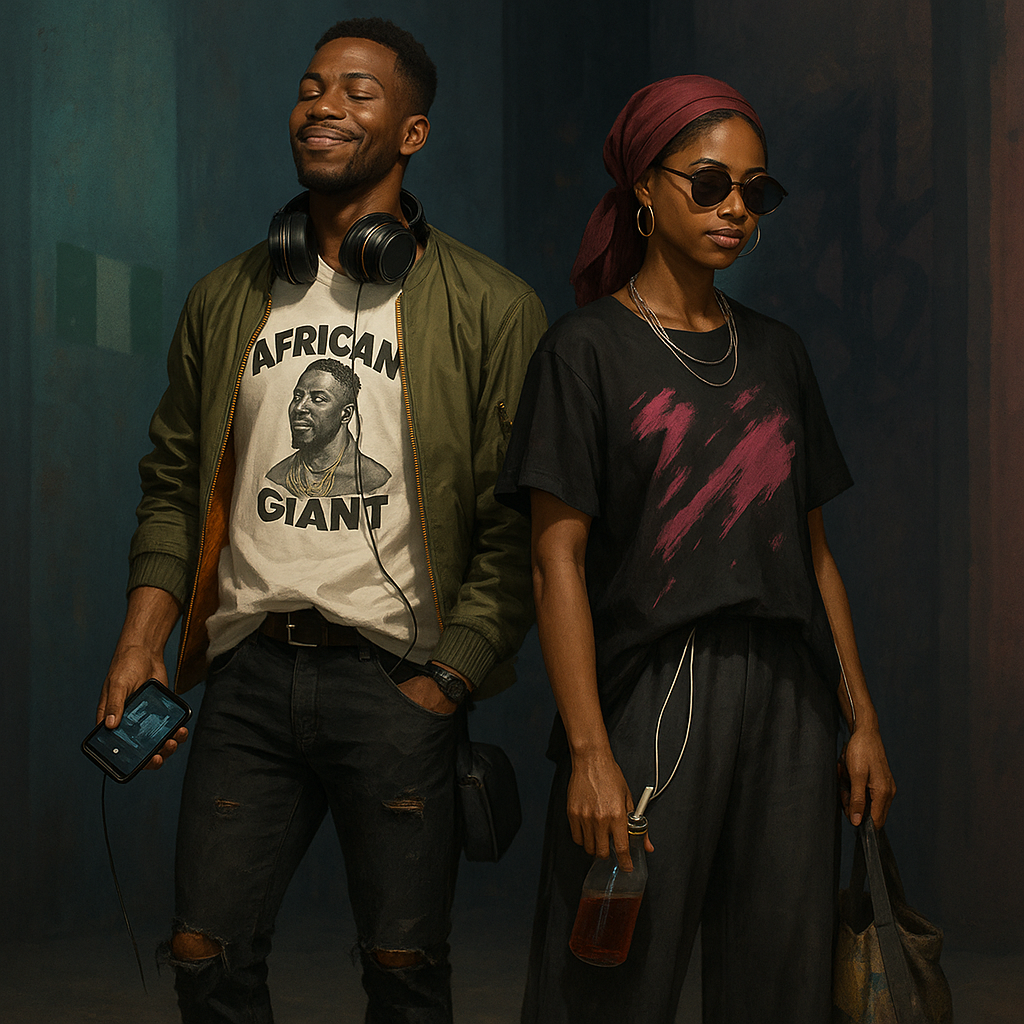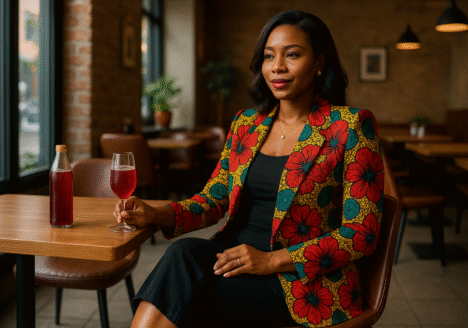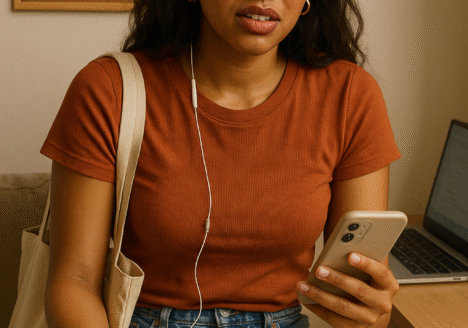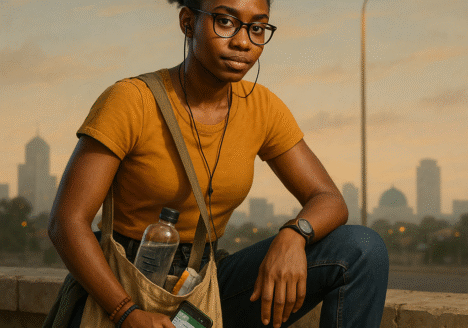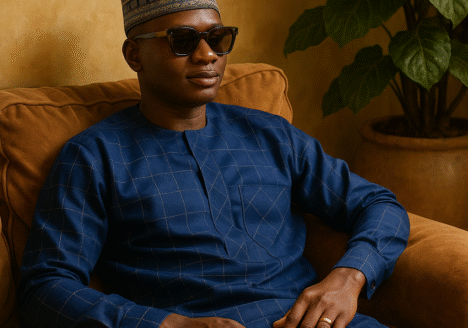Enter the Arena: Jide & Amaka
Jide is an Afrobeats purist. He has Burna’s entire discography memorized and believes Davido’s ad libs are national treasure. Amaka, on the other hand, is Alté royalty. She listens to Odunsi, Wavy, and Tems in the dark while sipping hibiscus tea and wearing thrifted sunglasses indoors.
Their group chat? A war zone. Their playlists? Like night and day. But when it comes to repping Nigeria globally, both genres are flying the flag high—in their own unique styles.
The Sound Roots
Afrobeats: Big drums. Catchy hooks. Vibes and motion. This genre grew from the soil of Fuji, Highlife, and Afrobeat (shoutout to Fela) and blossomed with stars like Wizkid and Tiwa.
Alté: Think of it as Afrobeats’ quirky cousin who went abroad and came back with piercings and a new accent. It’s experimental, genre-blending, and introspective. It borrows from soul, funk, hip-hop, and indie. Alté didn’t come to play—it came to express.
Visual Cue: [Split image: Left – dancers at a street party. Right – moody black-and-white photo of a rooftop jam session.]
Fashion & Aesthetics
Jide wears designer sneakers, icey chains, and calls every new drip a “banger.” Amaka? Corduroy pants, oversized tees, colored eyeliner, and a tote bag that says “vibe dealer”.
Afrobeats fashion: Glamorous, vibrant, bold. Alté fashion: Vintage, expressive, intentionally unbothered.
Visual Cue: [Carousel: streetwear pop vs. film-photo Alté style shoot.]
Soundscape Reach: Who’s Winning the World?
Afrobeats is in Times Square, Coachella, Billboard, FIFA soundtracks. It’s the sound of Lagos traffic and London clubs.
Alté is niche but influential. It’s the sonic language of youth culture, fashion campaigns, and experimental art spaces in Brooklyn and Berlin.
Jide says: “Bro, Afrobeats is what the world dances to.”
Amaka replies: “True. But Alté is what they remember.”
Visual Cue: [Graph comparing global streams of top Afrobeats vs. top Alté artists.]
Lyrics & Vibes
Afrobeats: Love, flex, parties, God, money. It’s easy to sing along and harder to forget.
Alté: Feels. Identity. Space. Vulnerability. It’s head-nod music for late nights and deep thoughts.
Example:
- Afrobeats: “E get why, no go reason am too deep.”
- Alté: “I lost my voice in a city of noise.”
Visual Cue: [Side-by-side lyric cards with contrasting fonts and moods.]
Who Owns the Culture?
Both. Period.
Afrobeats is mainstream magic. Alté is underground thunder. Both are Nigerian exports, both make waves, and both tell different chapters of the same story: Naija no dey carry last.
Jide & Amaka: They’ve learned to share playlists. One minute it’s Fireboy, next it’s Lady Donli. That’s the Nigerian way—chaotic harmony.
Visual Cue: [Poster of a festival lineup blending Afrobeats and Alté artists. Caption: “Different vibes, one heartbeat.”]
Final Notes: The Real Winner
The real winner is Nigerian sound itself. Whether it’s an Afrobeat anthem blaring in a Dubai club or an Alté track echoing in a Paris art show, Naija music is global now. Not because it chose one path, but because it dared to be many things at once.
